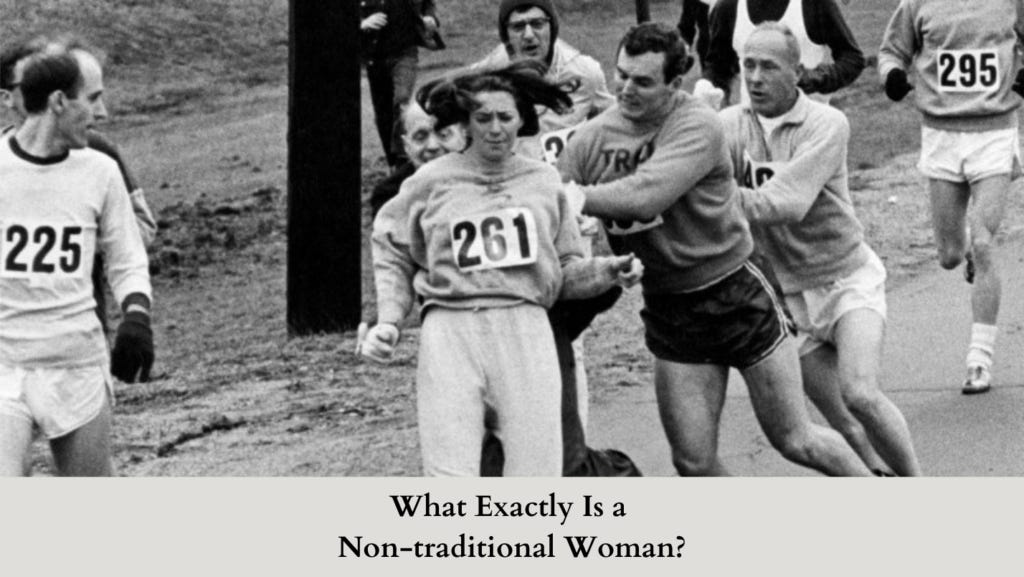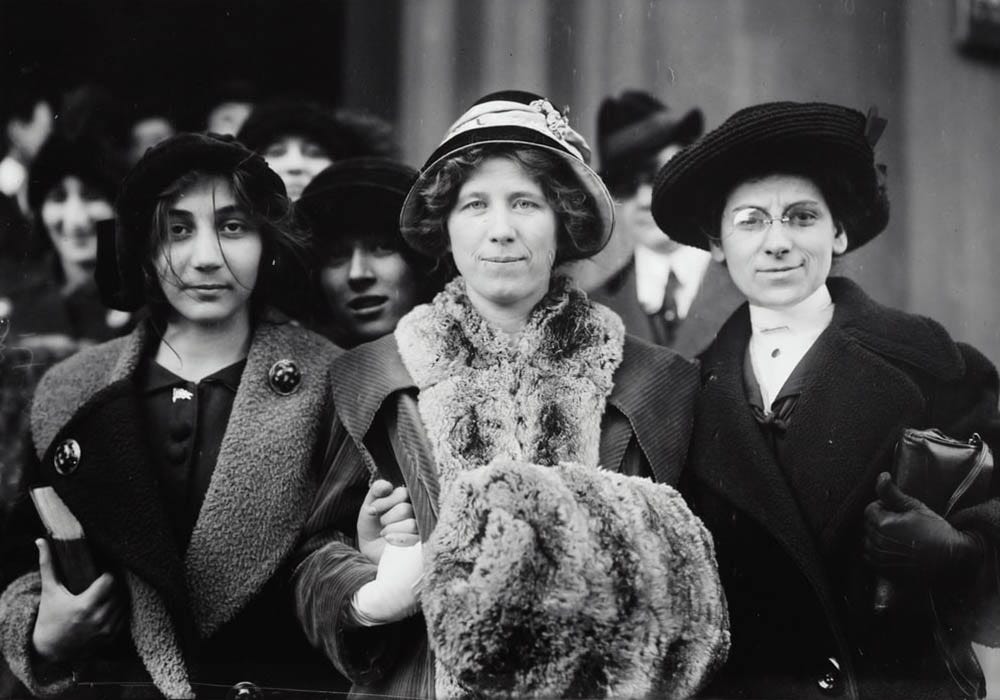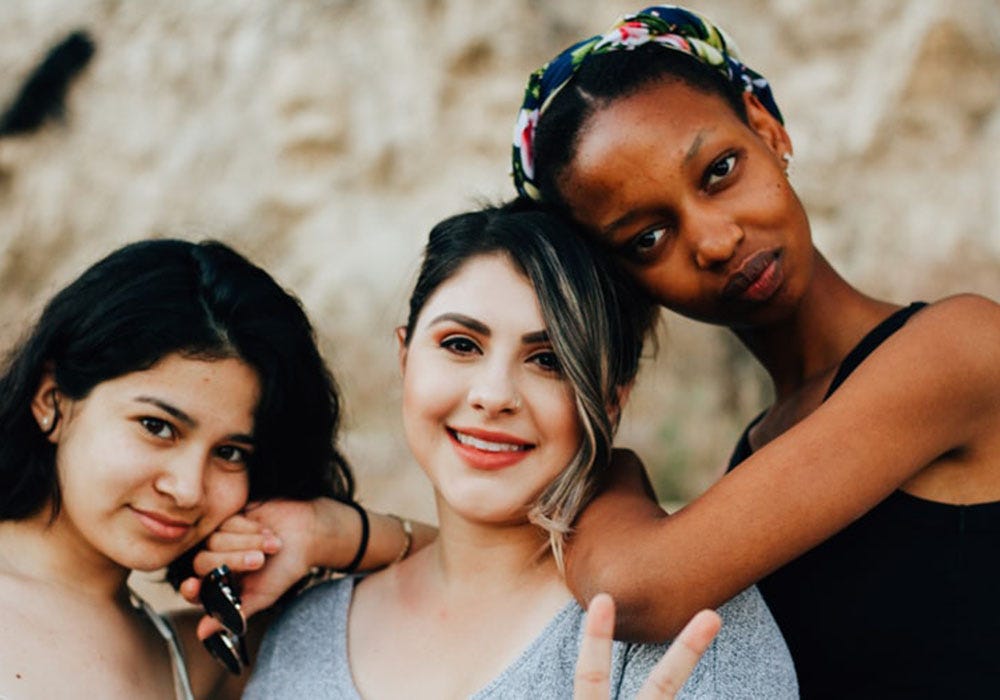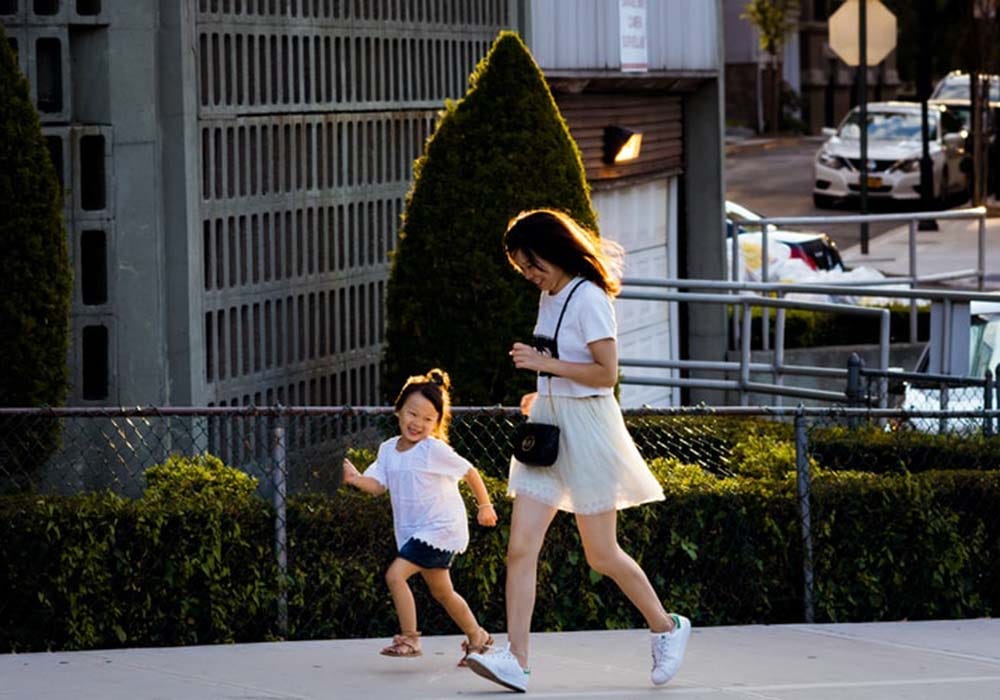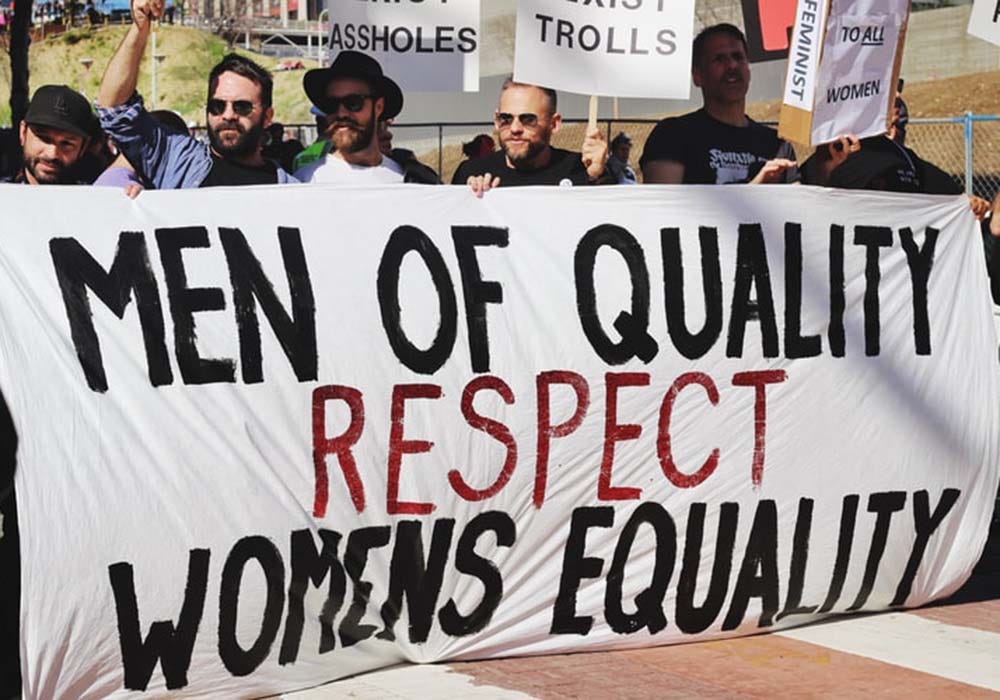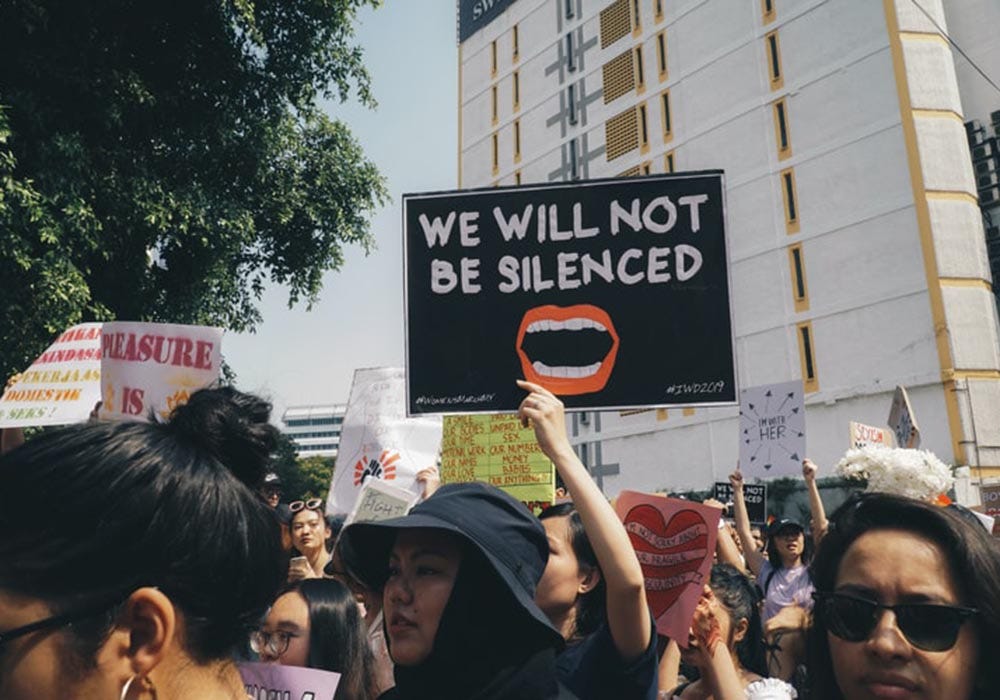What Exactly Is a Non-traditional Woman?
We hear the term traditional a lot, but what does it mean to be a non-traditional woman?1Well first, we need to investigate tradition. People will define tradition in their own way but usually, in tradition, a woman’s role goes something like this: clothing stereotypes, the expectation of marriage and children, gender-based jobs, quieting your voice, assumed genre roles, even insane beauty standards, to name a few.
It seems apparent that this list of “requirements” for women to complete and abide by has been sugar-coated in mainstream society with terms like tradition, conservative, and lady-like.
So, what happens when you step out of a traditional woman’s role and decide to design your own life? Well, most likely, society will criticize you, mock you, and come up with excuses as to why you’re “different.”
Women are autonomous beings, but society doesn’t want us to know that! So, join us as we explore what it means to be a non-traditional woman, and why it’s absolutely ok to be.
We discussed the act of being a non-traditional woman in-depth on our very first podcast episode which will on air soon. titled, what IS a non-traditional woman? But let’s chat about it here, shall we?
What Does It Mean to Be Non-Traditional?
The general definition of non-traditional describes something new and different as opposed to an established norm, custom, or method.
Non-traditional women break the barriers that trap us into a controlled system of norms or rules that society has put in place for us. Rules that don’t apply to men but instead are designed to govern women. Sound unfair? Well, this is the global culture that we live in.
Over the centuries, radical feminist movements have paved the way for progress in the fight for equality among the sexes, which we praise, applaud, and learn from. However, there’s a movement that is just as important as the public demonstrations we’ve seen over the years and that is the movement of everyday women.
When you have a woman who stands up for herself in the workplace, leaves an abusive relationship, disregards gender double standards, educates herself, raises her children on her own, asserts that she doesn’t want kids even when society pressures her, questions traditional values that are oppressive to her, or simply governs her own life within her traditional lifestyle, we can begin to see giant steps in the progression of gender equality.
When it comes to being a woman today, there are many societal pressures that are frankly, outdated. For thousands of years, society, culture, religion, and men, have loved telling women what they should and shouldn’t do.
If you’re someone who loves tradition, great. You do you! That’s part of having a choice. But if you’re someone who craves a non-traditional life outside of the stereotypical life women have been told to want, you’re in the right place. We’re here to advocate for the women that have been put down for not adhering to traditional expectations.
Here at shifting her experience, we love hosting open discussions around how to reject societal pressure and design your own life. We’re all about choosing your own path, and we offer an alternative voice for women seeking to exist outside of tradition
Maybe you’re someone who is open-minded and enjoys hearing about other experiences. Or perhaps you are a non-traditional woman and you’re tired of explaining your lifestyle to others. We definitely understand!
Societal Pressures That Affect Women
So what are these societal pressures that women face? Well, we’ve listed some examples below of how women are disciplined and expected to behave in our world:
•Conform to feminine dress codes
•Quiet our voice
•Follow the expectation to be presentable and likable – “Smile!” “Cheer up!” “That’s not very ladylike!”
•Abide by stereotypical gender roles
•Adhere to the expectation of being heterosexual and “straight presenting”
•Get married
•Create a family of our own
•Have a natural desire to nurture or be a caregiver
•Be sexy without being sexual
•Ignore gender equality issues if they don’t affect us – some countries are more oppressive and misogynist than others
By breaking down these expectations and limitations of women in society, you can begin to see exactly what it means to be a non-traditional woman. So what does a non-traditional woman behave like then?
Characteristics of a Non-Traditional Woman
There are several categories that can make up a non-traditional woman. You could be living a non-traditional life in so many ways and not even know it.
Firstly, we want to decipher the difference between a traditional woman and a non-traditional woman. Suffice to say, a traditional woman has been nurtured in a patriarchal society and is taught to think, behave, and live a certain way. Being non-traditional is about breaking out of that system by questioning expected roles, duties, behaviors, and even language used to describe women.
Traditional women have been taught to be a lady and to please a man or that we are not as good as men, and society influences women to believe this. This may sound harsh to those who believe that they are equal and do not “please” men. However, take the slightly more subtle example of “You throw like a girl!” in comparison to unequal pay between women and men for doing the same job.
Both are examples of oppression. Both examples highlight the inequalities between women and men and how one gender is better than the other, even if it presents itself as “harmless.”
So, if you’re trying to spot a non-traditional woman or if you are one yourself, you’ll notice these women often possess one or more of these traits:
•A passion to design their own life
•Assertiveness
•Financial independence
•Career-focused – respect to those in a field that needs more women!
•Neutralizing or breaking out of gender stereotypes
•Being a voice for egalitarianism in relationships and everyday life
•Rejecting biology as a basis for gender norms
•Valuing kindness over likability
Having a sense of open-mindedness
•Constantly questioning or breaking out of oppressive traditions
Now, this is really is just an overview. The list is quite lengthy when it comes to how someone breaks out of tradition. Like we said earlier, everyday women are doing it with when they stand up for themselves and design their own life.
It’s also important to note that tradition isn’t always a bad thing. However, following a tradition doesn’t automatically make it something good either. As a society, we should always be learning and questioning tradition and its origins. We need to question the teachings from hundreds, even thousands of years ago that have diluted their way to modern society and present themselves as tradition. This is empowering. This is how we shift her experience.
Our Response to Tradition
As a couple hosting a controversial topic on feminism, we’ve met some interesting counterarguments along the way that we feel it’s beneficial to share here.
One argument we met was made with the intent to remind us that we come from a lineal descent of traditional women who ought not to be knocked for their role in society. In response, being a non-traditional woman does not mean knock your ancestral roots, but rather, respect where you are now, today, and what you want.
Being a non-traditional woman is not about anyone other than empowering yourself. Being a non-traditional woman is about educating yourself on alternative lifestyles and respecting that everyone’s avenue is different. Being a non-traditional woman is about owning your path in life and not following the assumed “correct” way of living that our society teaches us.
Being a non-traditional woman does not criticize those who want a traditional lifestyle, marriage, kids, and a white picket fence. Being a non-traditional woman means deciding for yourself and not settling because it’s your assumed role. Being non-traditional breaks down the stereotype that one is better than the other.
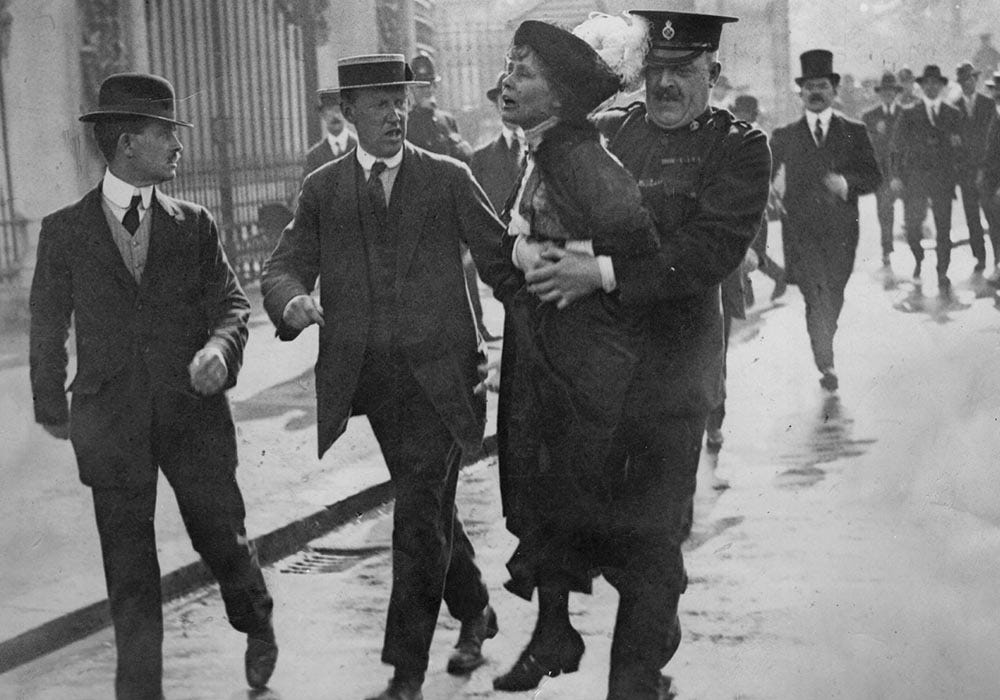
Another counterargument we heard from a woman listener is that there is nothing new to say when it comes to feminism — it’s all been said before. We’ve come to the conclusion that there is no important statement that hasn’t been said enough. There is no limit in the fight for equality. This is an important message to hear for anyone in an oppressed group.
We’ve noticed something really interesting since launching our podcast and opening the floor to non-traditional conversations. There is this culture of lack of consideration. Those who choose to live traditional lifestyles react to non-tradition as an offense against their way of living. Non-traditional people do not aim to offend or mock someone who does choose to live a traditional life. But rather, this is a clear example of a lack of consideration for those who don’t want the white picket fence.
Society is inclined to judge those that don’t conform to standard ways of living. Why? Is it uncomfortable for society when a woman raises her baby by herself? Or is it that by raising her baby without a father figure breaks the linear path of what’s “correct” in life?
I once had a conversation with another woman who asked me if I wanted kids. In her asking, there was the obvious assumption that I had the choice, “Did I want kids?” She was asking me because she didn’t know if I did or didn’t want children. Not because it was an interrogation, right? Which means there was a chance that my answer was no, I may not want kids.
However, when I told her that I didn’t want children, she immediately began to convince me that one day I would change my mind. When I assured her that I had made up my mind already, she couldn’t let it go. “But why don’t you want to have kids? Who’s going to take care of you when you’re old? You’re a woman, though! Do you hate kids? What if you were an aunt, would you dislike your nieces and nephews?”
All of a sudden I realized that my personal life was under a microscope and I was now met with questions that I felt obliged to answer. But why? I answered her with a simple, “I just don’t want kids.” But whatever my reason was, was not her business to know. She answered me with, “Oh my God! I could never not have kids!”
Breaking tradition is uplifting for women who want to design their lives the way they desire to. It is not an attack on women who follow tradition. Being a non-traditional woman is not a label for not wanting marriage and kids. Someone who is non-traditional can have those things. We classify a non-traditional woman as designing your own life regardless of what society expects from you.
In society, there are a plethora of platforms for women and men on living a stereotypical life, but not enough people giving a voice to those who don’t want the same as everyone else.
Being a non-traditional woman means being able to appreciate and accept that someone else may not want the same life as you, and the hope that the same consideration will be taken in response to being non-traditional.
Misogynist Traditions
In an attempt to take an even closer look at some traditional woman roles and the damaging connotations that have been released on women over the years, we got out our magnifying glass and decided to look at some controversial viewpoints from our male counterparts in regard to women.
When we see damaging vocabulary used against women, we need to take a step back and question what we have been trained to believe is the norm and “just the way life is.” To give an example of where we as a society come from in history, here are some quotes by famous and powerful men about women.
“Nature intended women to be our slaves. They are our property.”
-Napoleon Bonaparte 1769-1821
“They have the right to work wherever they want to, as long as they have dinner ready when you get home.”
– John Wayne 1907-1979
“Obviously, the genes of women are flawed. They are poorly designed creatures who do not want to have sex nearly as often as needed for the human race to get along peaceably and fruitfully.”
– Cenk Uygur 1970 – present
“I’ve said if Ivanka weren’t my daughter, perhaps I’d be dating her.”
– Donald Trump 1946 – present
So here we see a ripple effect of male-entitlement, sexual control, the expectation of a woman’s duties, and over-all misogyny in the attitude towards women.
What’s important to remember here is that history shapes us. History has a knock-on effect on modern-day consciousness. So if you read something that a misogynistic man said a thousand years ago, don’t be fooled into thinking that those views are irrelevant today. They still hold powerful consequences for women because many groups in society, and in the world, use this oppressive mindset against women in the present day.
The good news is, in this and age, we do see a lot more allyship evolving in our society in regards to gender equality with male public figures like Daniel Radcliffe who says that he “is a feminist in as much as I am an egalitarian about everything.”
Allies are basically men who argue against the use of misogynistic vocabulary, gender-based stereotypes, and sexual shame towards women that yield men of abusive responsibility. So let’s focus on raising more of these types of men, whether from an infant or as an adult!
Dismantling Privileged Viewpoints
Just like any form of privilege, humans tend to minimize their understanding of something from the mere level of their perception only.
In other words, the majority of men cannot begin to understand a woman’s experience because they are blinded by their own privileged experience. However, there are many allies among us who do listen — who listen to understand and not listen to fire back. Women’s voices, opinions, and behaviors have too long been dampened by the entitlement of our male counterparts.
In our conversations at home on the couch or over dinner, we’ve played around with the notion that men are not threatened by a woman’s voice but instead, patriarchy doesn’t want to hear us. Not because they fear that women will act against their power and dominance, and essentially take over. Patriarchy is not afraid of women, patriarchy doesn’t like women.
The oppressiveness is not out of fear, the oppressiveness comes from “How dare you challenge me!” There’s a difference. When we challenge men, we anger them because we deprive them of what they think they are entitled to — our bodies, our autonomy, our free will, our opinion, our sexual freedom, our assertiveness, our education, our beliefs, our authority, our time.
So what’s all this got to do with being non-traditional eh? Well, nothing is born out of a vacuum. Everything is interconnected, and we stem from a long line of damaging norms that do not have to be followed in order to keep society happy. Design your own life. You do you!
How Do We Empower Ourselves?
While there are an ample amount of factors that can make someone non-traditional, our biggest advice is to OWN IT! Own the fact that you’re a non-traditional woman and be proud of yourself for it.
It’s 2020, women should be able to live their lives the way they want to and she. is here to tell you that it’s totally ok and applaudable that you’ve designed your life for yourself. No one should feel ashamed for not ticking off societal expectations.
For more blog posts similar to these topics, check out our blog!
Ashish & priyanshi
shifting her experience.



